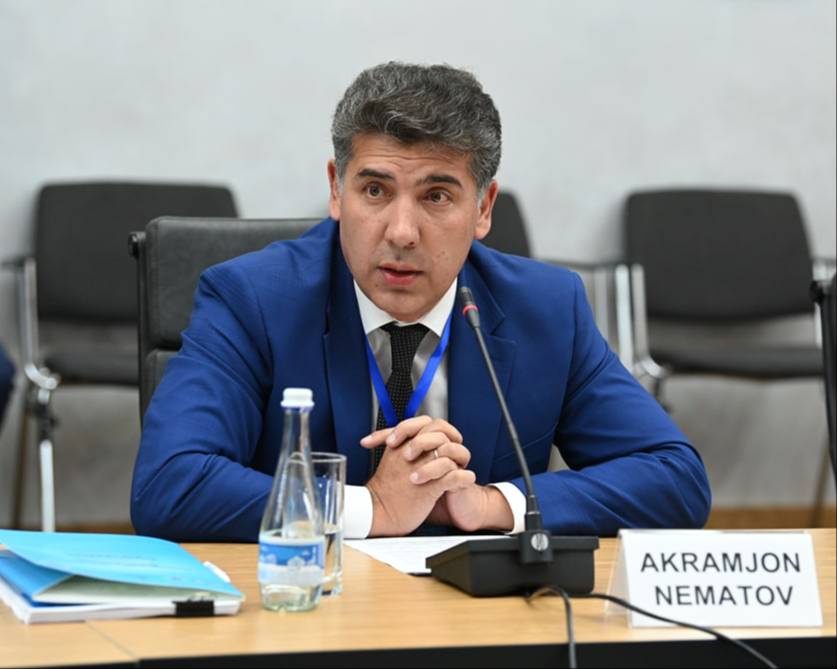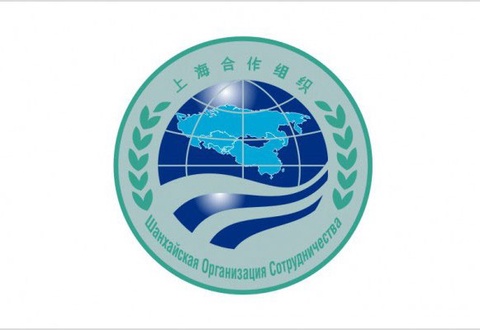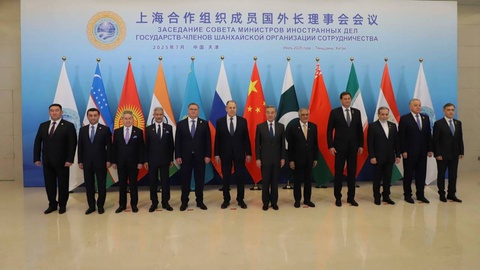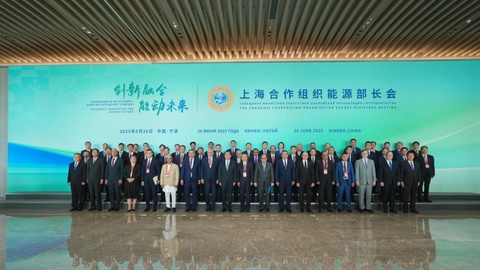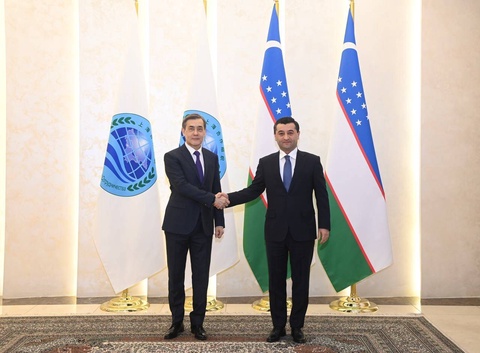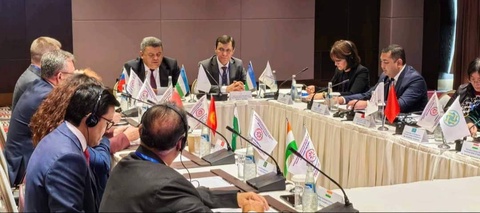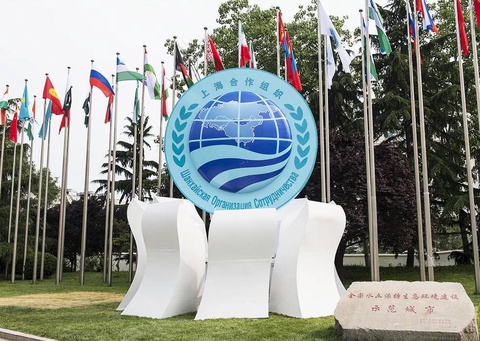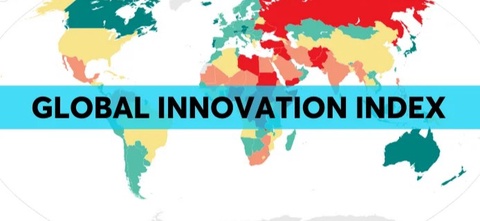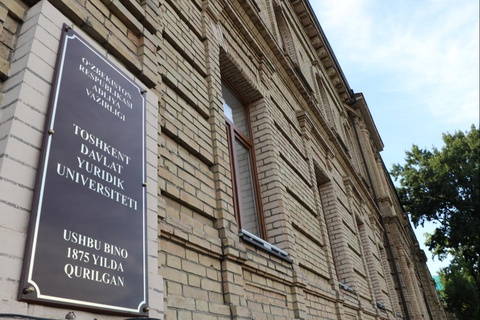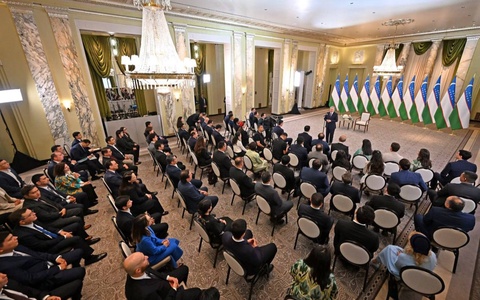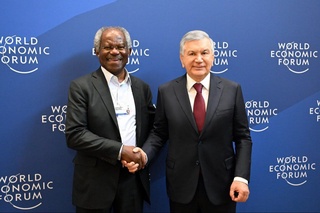A distinctive feature of the upcoming summit from the previous ones is that for the first time it will bring together a representative composition of participants, including the heads of 15 states, including the leaders of all SCO member states, observer countries (Belarus, Iran and Mongolia), the presidents of Türkiye, Turkmenistan, Azerbaijan and the Prime Minister of Armenia, high representatives of Saudi Arabia, Qatar and Egypt.
Another feature of the summit is its extensive agenda, which provides for the signing of more than 30 documents, including conceptual and strategic ones, which is also unprecedented in the history of the organization.
Among them, we can highlight the concepts of cooperation between the SCO member states on the development of connectivity and the creation of efficient transport corridors, smart agriculture and the introduction of agro-innovations, cooperation programs in the use of renewable energy sources, infrastructure development, promotion of industrial cooperation, development of digital literacy, as well as a joint action plan for the development of intra-regional trade and a road map for cooperation in the prevention and treatment of infectious diseases.
The adoption of the Comprehensive Action Plan for 2023-2027 on the implementation of the provisions of the SCO Treaty on Long-Term Good Neighborliness, Friendship and Cooperation, as well as the Joint Statement of the Heads of the SCO Member States on Response to Climate Change, deserves special attention.
These documents will define new vectors of multilateral cooperation, are designed to consolidate the efforts of the SCO member states and become a collective response to the challenges that the international community is facing today.
The demand for the upcoming meeting and its agenda for ensuring international peace, security and sustainable development is evidenced by the fact that for the first time the summit will be attended by many different international and regional organizations, including the UN, ESCAP, UNESCO, CIS, CSTO, EAEU, CICA, ECO, ASEAN and Arab League.
The invitation by the Uzbek side of such a large number of states, international and regional organizations that are conductors of the interests of extra-regional states, supported by all SCO countries, underlines the determination of the leadership of Uzbekistan to create an effective platform for multilateral dialogue to overcome the growing crisis of confidence, return international relations to the trajectory of constructive development and giving a tangible impetus to international cooperation in the interests of global security, stability and sustainable development.
The Samarkand Summit aims to make an important contribution to the restoration of confidence in the system of international relations and become a kind of starting point for launching a new stage of interstate and multilateral cooperation based on dialogue and mutual understanding.
At the same time, the readiness of states and international organizations to be represented at the upcoming summit speaks of the recognition of the SCO as an important factor in ensuring international peace and security, its significantly increased authority as an effective mechanism for a multilateral cooperation, a serious partner in resolving issues on the international agenda.
Undoubtedly, this is also a manifestation of high confidence in Uzbekistan, capable of acting as a reliable mediator in establishing a multilateral dialogue and joint search for mutually acceptable solutions on pressing issues on the global and regional agenda. The international community has firmly established the perception of Uzbekistan as a state that, thanks to the pragmatic, constructive, balanced and proactive foreign policy of President Shavkat Mirziyoyev, in a historically short period, has been able to transform Central Asia into a region of good neighborliness, trust and mutually beneficial cooperation, making a significant contribution to the practical solution of both regional and global problems.
The organization of the SCO Summit in an expanded format with the involvement of a wide range of international and regional organizations also testifies to Uzbekistan’s commitment to pursuing an open foreign policy, maintaining and developing a comprehensive inclusive dialogue with the international community.
In this matter, Uzbekistan has always shown consistency. It was on the initiative of Tashkent that in the founding documents, in particular in the Declaration and Charter of the SCO, the openness of the organization, the development of relations with international organizations are defined among the main goals, and in 2004, the year of the first chairmanship of Uzbekistan in the SCO, it was decided to expand the network of partnerships with international organizations. The strategic course for the development of relations with multilateral structures was reinforced by the acquisition of the SCO observer status at the UN General Assembly initiated by Uzbekistan in the same year.
In the article of the President of Uzbekistan Shavkat Mirziyoyev “The SCO Samarkand Summit: Dialogue and Cooperation in an Interconnected World”, published on the eve of the SCO Summit, the Head of the state focused on the fact that international and regional organizations continue to serve as the most important conductors of interstate interaction, help countries overcome disagreements and strengthen mutual understanding, develop political and economic cooperation, expand trade and stimulate cultural and humanitarian exchanges.
In this regard, the formalization of partnerships with ESCAP, Arab League and UNESCO initiated by the Uzbek side during the upcoming summit will become a logical continuation of efforts to use the potential of international organizations in addressing current issues facing the SCO member states.
Moreover, this will again testify that the SCO remains committed to the principles of openness, has a non-aligned character, and its activities are not directed against third countries or international organizations.
In this context, Tashkent proceeds from the fact that the SCO should continue to remain open to broad international cooperation, avoid political confrontation, be guided by the principles of good neighborliness, equality and mutual respect, non-interference in internal affairs, search for mutually acceptable consensus solutions based on reasonable compromises.
The focus of the SCO on these principles in the context of the declining effectiveness of other institutions of multilateral cooperation is the main reason for the growing interest of international and regional organizations in establishing and enhancing collaboration with the SCO. Moreover, the attractiveness of the SCO for other states, international and regional organizations is also determined by the following factors.
First, it is the recognition of the growing role of the SCO as the supporting structure of the architecture of security and sustainable development in the Eurasian space, which is turning into a key factor in the transformation of the international order and world economic relations. Today, the SCO is 2/3 of the territory of Eurasia, 50% of the world’s population (3.4 billion people), 20% of world GDP, 50.1% of all natural gas reserves on Earth, more than 40% of the world’s livestock and crop production, huge human, intellectual and technological potential.
Moreover, many states and multilateral organizations are striving to become active participants and beneficiaries of the positive processes of strengthening good-neighborliness and cooperation, forming a space for sustainable development in Central Asia, which is the geographical core of the SCO.
Second, the SCO’s approach to building constructive, mutually beneficial relations with all parties to solve pressing global problems, including in security, economy, trade, industry, food, ecology, and healthcare, finds support.
This is of particular relevance today, when a deep crisis of confidence at the global level provokes geopolitical rivalry and bloc confrontation, which in turn leads to the severance of trade and investment ties, aggravation of food and energy security problems, and reduces the level of interaction in resolving issues related to global climate change, shortage of natural and water resources, reduction of biodiversity, the spread of dangerous diseases. It is constructivism and multilateralism, based on taking into account and respecting the interests of everyone, that can contribute to finding answers to these challenges, which cannot be achieved separately.
Guided by this principle, in recent years the SCO has significantly expanded its network of partner organizations, effectively interacting with international organizations in resolving many issues. In particular, the SCO cooperates with the UNOCT and UNODC, the CSTO cooperates in the fight against terrorism and drug trafficking, with UNIDO, UNCTAD, the CIS, the EAEU, ASEAN – on trade, transport, logistics, industrial cooperation, the UN FAO – in food and agriculture, UN OCHA – humanitarian coordination.
Third, the hallmark of the SCO is the absence of ideological narrow-mindedness in its activities, adherence to universal values, universally recognized norms and focus on achieving specific results by establishing pragmatic relations with all interested parties.
As President Shavkat Mirziyoyev noted in the above-mentioned article, the SCO is a unique interstate structure that has managed to unite countries with different cultural and civilizational codes, foreign policy guidelines and models of national development. The concept of the success of the SCO is the promotion of multifaceted cooperation through ensuring regional security.
Fourth, the recognition by the international community of global connectivity, awareness of its joint responsibility for solving the problems of international peace, security and sustainable development contributes to the expansion of multilateral cooperation of the SCO.
In general, today the SCO is entering a new, even more important stage in its development, transforming into a dynamically developing international organization and an important component of the system for maintaining global strategic stability. The expansion of the network of partnerships with international organizations is evidence of the recognition of the key role of the SCO in maintaining international peace and security, demonstrates its openness, lack of alternatives to multilateral cooperation as an important condition for effectively countering global challenges and threats to security and sustainable development.
Moreover, there is no doubt that in the context of an aggravating international situation and growing threats with a simultaneous weakening of the mechanisms for maintaining it, the authority of the SCO as one of the drivers of world economic development and the world’s largest regional organization in the international arena will increase, actualizing the further expansion of the network of partner multilateral structures to effectively search for common answers to the challenges facing the global community.
At the same time, one of the key conditions for the progressive and sustainable development of this process should remain the commitment of the SCO to the Shanghai Spirit, which is based on mutual trust, mutual benefit, equality, mutual consultations, respect for the diversity of cultures, the desire for joint development, as well as strict adherence to the principles of the SCO Charter, which guarantee non-bloc status, openness, non-direction of the organization against third countries or international organizations, equality and respect for the sovereignty of all participants. Only in this way, as the Head of Uzbekistan noted, the SCO can become “a pole of attraction without dividing lines in the name of peace, cooperation and progress”.
Based on the proven principles of cooperation on the basis of the Shanghai Spirit, the member states, together with multilateral institutions, will be able to identify new main areas of multifaceted cooperation in modern conditions, consolidate specific prospects for updating the SCO agenda to fully unlock its enormous potential and enhance the stabilizing role of this organization in solving urgent problems of regional and international cooperation, taking into account the new reality that is emerging in the world.
Today, the SCO must meet the demands of the international community for justice, mutual understanding and assistance, satisfy the need of the peoples of the world to restore and strengthen political and socio-economic stability and security.
And in this regard, the Samarkand Summit and the new initiatives of Uzbekistan put forward at it will play a historic role, and the use of the capabilities of international and regional organizations should become an important factor in their successful implementation.
Or, ending with the words of the President of Uzbekistan Shavkat Mirziyoyev, “Effective international cooperation makes the world more stable, predictable and prosperous. This is the most viable, accessible and closest way to solving common problems of our time as well as a universal insurance policy against future challenges and shocks”.
Akramjon Nematov,
First Deputy Director of the Institute for Strategic and Regional Studies under the President of the
Republic of Uzbekistan


